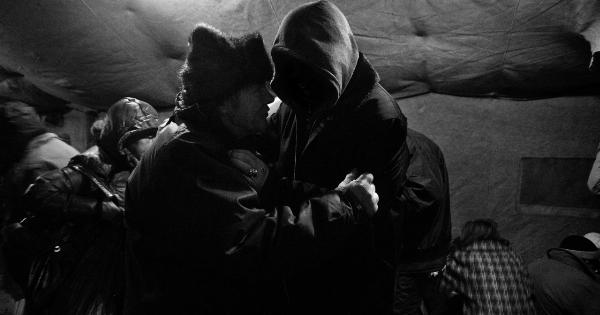Bipolar Disorder, also known as manic depression, is a mental health condition that can affect a person’s mood, energy levels, and ability to function in daily life. It is a long-term condition that can be managed with proper treatment and medication.
However, it is often misdiagnosed or misunderstood, which can lead to complications. Here are 15 warning signs of bipolar disorder to watch out for:.
1. Unusual Mood Swings
One of the most common symptoms of bipolar disorder is mood swings. People with bipolar disorder experience extreme highs and lows that can shift suddenly or gradually over time.
They may feel elated, euphoric, or hyperactive during manic episodes, and then suddenly feel depressed, sad, or hopeless during depressive episodes.
2. Racing Thoughts
People with bipolar disorder may experience racing thoughts during manic episodes. Their minds may feel like they are going a mile a minute, making it difficult to concentrate or sleep.
3. Poor Judgment
During manic episodes, people with bipolar disorder may make impulsive decisions that can have negative consequences. They may spend money recklessly, engage in risky behavior, or make grandiose plans that are unlikely to succeed.
4. Insomnia
People with bipolar disorder may have difficulty sleeping during manic episodes, which can exacerbate mood swings and affect their ability to function during the day.
5. Lack of Motivation
During depressive episodes, people with bipolar disorder may feel lethargic, listless, and unmotivated. They may struggle to complete basic tasks or take care of themselves.
6. Irritability
People with bipolar disorder may experience irritability during both manic and depressive episodes. They may become easily agitated or hostile, and may snap at others without provocation.
7. Rapid Speech
During manic episodes, people with bipolar disorder may talk rapidly and loudly, and jump from topic to topic without pausing for breath. This can be exhausting for others to keep up with, and can often be a sign that something is wrong.
8. Anxiety
People with bipolar disorder may experience anxiety during both manic and depressive episodes. They may feel nervous, tense, or on edge, and may struggle to relax or focus on anything else.
9. Depressive Symptoms
During depressive episodes, people with bipolar disorder may experience symptoms that are similar to those of major depression.
These can include feelings of sadness, hopelessness, and worthlessness, changes in appetite and sleep, and thoughts of self-harm or suicide.
10. Manic Symptoms
During manic episodes, people with bipolar disorder may experience symptoms that are similar to those of other mental health conditions, such as schizophrenia or attention-deficit hyperactivity disorder (ADHD).
These can include hallucinations, delusions, and problems with attention and memory.
11. Substance Abuse
People with bipolar disorder may be more likely to abuse drugs or alcohol as a way of coping with their symptoms. This can exacerbate their condition and make it more difficult to manage.
12. Disrupted Relationships
People with bipolar disorder may have difficulty maintaining stable relationships due to their mood swings and unpredictable behavior. This can cause strain on their personal and professional relationships, and may lead to social isolation over time.
13. Cognitive Problems
People with bipolar disorder may experience problems with cognitive function, such as memory loss or difficulty concentrating. This can make it difficult to complete academic or professional tasks, or to keep up with social obligations.
14. Decreased Productivity
People with bipolar disorder may struggle with decreased productivity during both manic and depressive episodes.
They may find it difficult to focus on tasks or complete them in a timely manner, which can affect their ability to succeed in school or work.
15. Suicidal Thoughts
People with bipolar disorder may experience suicidal thoughts during depressive episodes, or during periods of extreme stress or anxiety. It is important that these individuals seek help immediately in order to prevent harm to themselves or others.
Conclusion
Bipolar Disorder is a complex and challenging condition, but it can be managed with proper treatment and support.
If you or someone you know is experiencing any of these warning signs, it is important to seek help from a mental health professional as soon as possible. With the right resources and support, people with bipolar disorder can lead happy, fulfilling lives.






























